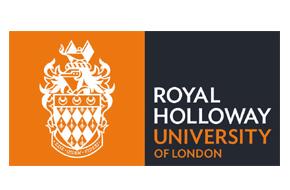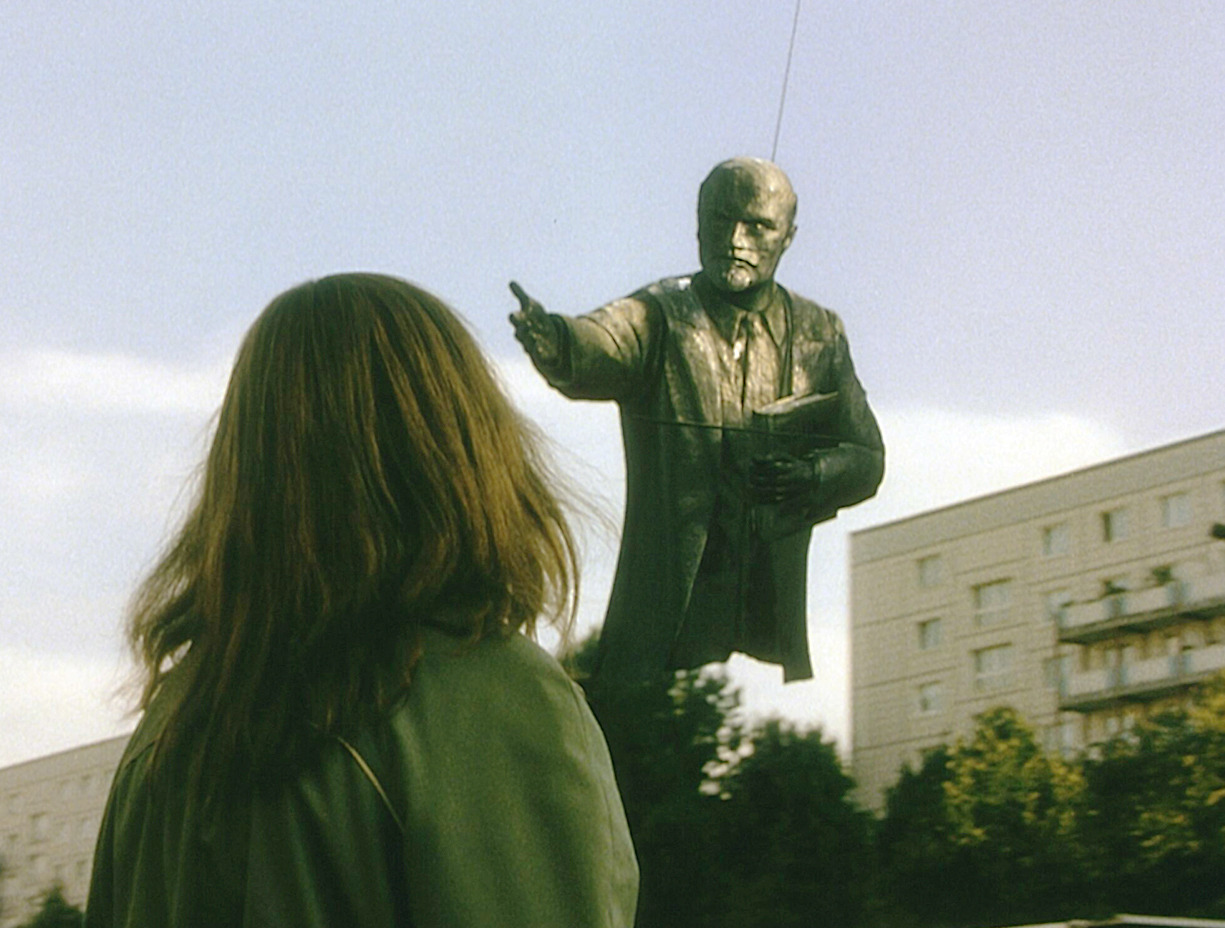With the fall of
the Berlin Wall and the rise of Fukayaman post-politics, all that was left was
for the Soviet era to return in the form of benign consumer nostalgia. In 2003
the German movie Goodbye Lenin! sparked a flood of nostalgia for the days of
the DDR and jars of Spreewald Gherkins that typified a resurgence across
various post-Communist states. Trabants, Spreewald Gherkins, Druzhba cheese and
Sovetskoye champagne are just some of the old products and brands that seem to
have been injected with nostalgic value (see Kravets
and Orge 2010).
Meanwhile we see the rise of Cultural Revolution restaurants that serve food,
display artefacts and clothes from the communist era in China whilst equivalent establishments can be
found from Budapest to St Petersburg
Yet the spectre
of a renewed communism that haunts Europe also takes another form and the sites
to see these resurgences are not limited to Berlin ’s
DDR museum or the Yugonostalgia theme park in Serbia
The communist
hypothesis remains the right hypothesis, as I have said, and I do not see any
other. If this hypothesis should have to be abandoned, then it is not worth
doing anything in the order of collective action. Without the perspective of
communism, without this Idea, nothing in the historical and political future is
of such a kind as to interest the philosopher. Each individual can pursue their
private business, and we won’t mention it again.
Concurrently there is a resurgence of
interest in Marxism. For example, the geographer David Harvey has been
recording a series of highly popular YouTube short lectures designed to guide
the exponentially burgeoning number of Capital reading groups that are to be
found across the world, especially in Europe. Not
surprisingly there has been a series of new Marx readers brought to the market
by David Harvey, and Frederic Jameson whilst Terry Eagleton’s popular press Why Marx Was
Right even somehow became a temporary best seller on the Amazon business
literature charts!
The background to such resurgence must surely be understood with reference to contemporary events that challenge the liberal-capitalo-parliamentarian hegemony while a series of catastrophic economic eventualities tear across Europe, imposing austerity and producing obvious cases of injustice. Meanwhile across the Arab Spring revolutionary politics re-appear in a form that poses questions of commensurability with European movements, from mass occupations in Athens to the rise of the Indignados in Madrid. The Occupy Wall Street movement quickly spread and delivers us to a period in which, as Costas Douzinas puts it, the Real of History has returned and Fukayama inspired dreams of an end of ideological struggle expire
The background to such resurgence must surely be understood with reference to contemporary events that challenge the liberal-capitalo-parliamentarian hegemony while a series of catastrophic economic eventualities tear across Europe, imposing austerity and producing obvious cases of injustice. Meanwhile across the Arab Spring revolutionary politics re-appear in a form that poses questions of commensurability with European movements, from mass occupations in Athens to the rise of the Indignados in Madrid. The Occupy Wall Street movement quickly spread and delivers us to a period in which, as Costas Douzinas puts it, the Real of History has returned and Fukayama inspired dreams of an end of ideological struggle expire
The return of the Real of History calls
into question previous postmodern assumptions regarding the fragmentation of
time. Within such perspectives, models that assume an arrow-like linearity of
time dissipate until a fluidity becomes manifest between time and space. In
such a context, nostalgia becomes a postmodern phenomenon of consumer culture
whereby past and present co-exist and mutate in each other’s company. Here the benign rehabilitation of communist artefacts can be understood in a
fragmented sense: as artefacts divested of their political meaning and
existing alongside a series of freely floating signifiers. However the
contemporary return of history disrupts this fragmentation and returns us,
violently, to the Real of time and with the apparent recognition of a finitude
and historical contingency of capital. As Badiou notes, the process of subjectivation that takes place in events
where people recognise themselves as subjects of history reasserts
connectivities of time. Such circumstances pressurise marketing’s theoretical
coordinates of consumer nostalgia and may require an alteration of the form of
analysis.
For the field of consumer research in general and consumer culture theory in particular this resurgence of active history is disorientating. The relationship between the field and canonical critical theory is well established with leading leftist theorists like Michel Foucault, Theodor Adorno, Pierre Bourdieu and Roland Barthes regularly cited yet these citations, in an age of where history seemed to have achieved itself, arguably shares the same theoretical coordinates of benign communist consumer nostalgia as engaging with radical theory is assumed to be a form of mixing freely floating signifiers, divested of their politics and hence not necessarily implying any form of political engagement. Now that critical theory has been re-energised and History returns, does the politicality of citation become contentious again? What are the implications of citing theory from the revolutionary left, or at least of scholars who were clearly working through issues related to revolt, during a time of potential revolt? Can scholars still insist upon a reflexive distance between their research and the politics of their conceptual tools as though the encounter is entirely neutral? And what of the return of questions of social justice and revolution to theory, seriously intended? Must consumer culture theory advocate a political position? Or even more pointedly, can consumer culture theory continue to legitimately evade the politics of its own theoretical canon?
For the field of consumer research in general and consumer culture theory in particular this resurgence of active history is disorientating. The relationship between the field and canonical critical theory is well established with leading leftist theorists like Michel Foucault, Theodor Adorno, Pierre Bourdieu and Roland Barthes regularly cited yet these citations, in an age of where history seemed to have achieved itself, arguably shares the same theoretical coordinates of benign communist consumer nostalgia as engaging with radical theory is assumed to be a form of mixing freely floating signifiers, divested of their politics and hence not necessarily implying any form of political engagement. Now that critical theory has been re-energised and History returns, does the politicality of citation become contentious again? What are the implications of citing theory from the revolutionary left, or at least of scholars who were clearly working through issues related to revolt, during a time of potential revolt? Can scholars still insist upon a reflexive distance between their research and the politics of their conceptual tools as though the encounter is entirely neutral? And what of the return of questions of social justice and revolution to theory, seriously intended? Must consumer culture theory advocate a political position? Or even more pointedly, can consumer culture theory continue to legitimately evade the politics of its own theoretical canon?



when nothing goes right... go left :)
ReplyDeleteAlan, I'd argue that "the benign rehabilitation of communist artefacts" is not so much about the past or longing for the past. rather, it is a commentary on the present - a critique of a postsocialist neoliberal state. perhaps even an attempt to imagine an alternative. thus, "communist artefacts" are not "divested of their political meaning" but are political through and through (for good e.g. see Klumbyte on Soviet sausage). Then, framing analytically this phenomenon as consumer nostalgia not only sustains the idea that history is linear but importantly glosses over the politics implicated there, hence makes it a comfortable topic for consumer culture theory/ists...
Maybe the Ostagie has two different sides to it. For someone from the East, they probably just miss their old way of life, as its just tradition though they aren't too crazy about the Stasi and all. People from the West probably are just curious about what the East is like if they have never been there. They wonder what life was like and just how different it was, or just fascinated because its different.
ReplyDeleteI don't think its necessarily about freedom, but culture differences.